Special Report
Bad Night's Sleep Could Be a Symptom of These Health Problems
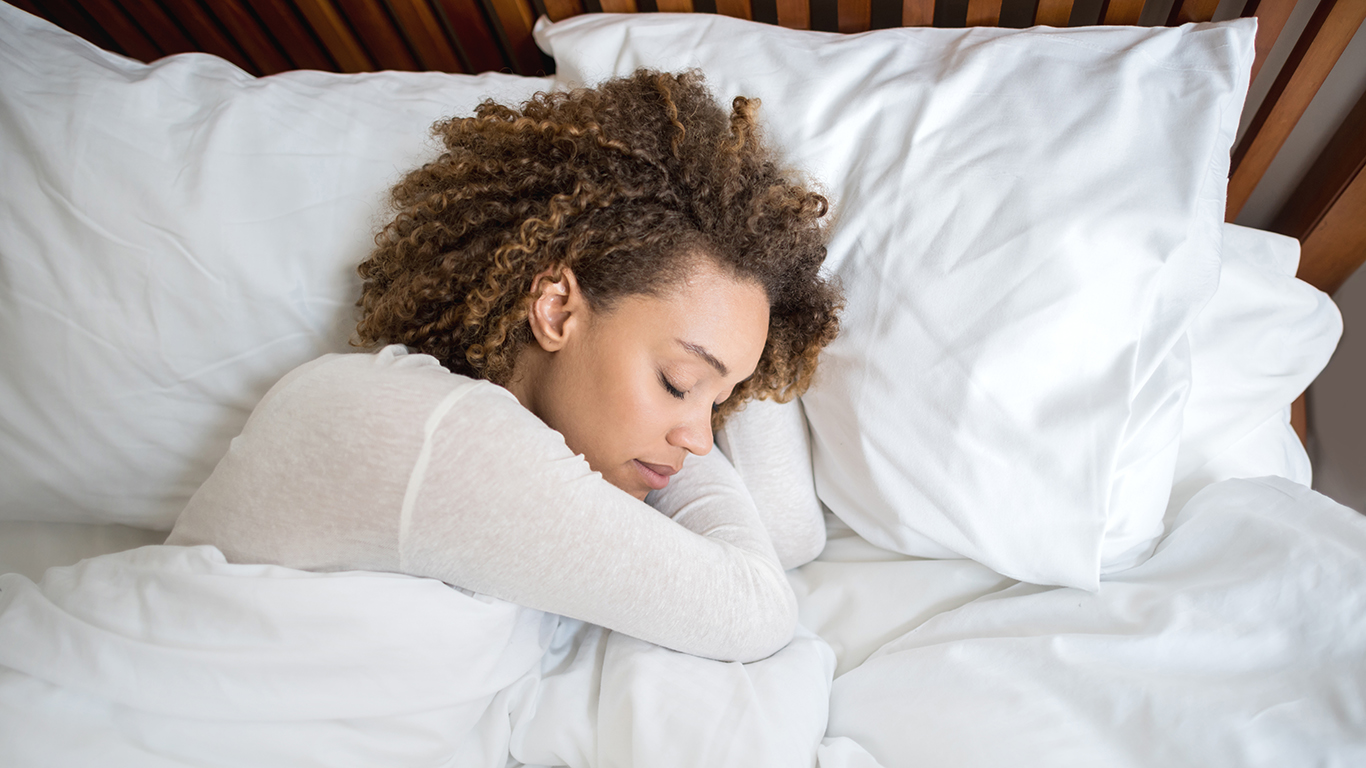
Published:

A third of American adults say they sleep less than the recommended seven to nine hours. The optimal amount of sleep is highly dependent on the individual, but most people would likely be happier and healthier if they had between 60 and 90 minutes more sleep per night, according to the American Psychological Association.
But even people who get the recommended amount of uninterrupted sleep may be troubled by daytime fatigue and excessive sleepiness because of a variety of conditions that cause sleep problems.
To compile a list of 16 health problems associated with sleep disturbances, 24/7 Tempo reviewed dozens of articles in publications such as the Sleep Foundation, Science Daily, and National Institutes of Health.
Sleep quantity and quality have both been found to increase the risk of certain diseases, including heart disease, diabetes, and dementia. These and other conditions can also be the medical cause for sleep problems.
Sleep occurs in several stages. In the first, which lasts a few minutes, your eyes are closed but you’re still alert. In the second, light sleep, your heart rate slows and your temperature drops. Next is deep sleep, when the body repairs muscles and tissues. The last phase is REM (rapid eye movement) sleep, during which you dream and form memories.
Each of these four stages has its own role in promoting good health. Here are 19 secrets to sleep better at night.
Click here to see conditions bad sleep could be a symptom of

Anxiety
Sleep problems are one of several physical symptoms of anxiety disorders. People struggling with anxiety are much more likely to experience serious sleep disturbances when facing stress, according to the Sleep Foundation. In some cases, falling asleep is not a problem, but frequently waking up with worry is.
Sleep and anxiety are strongly connected. A change in one will influence the other, according to Joshua Tal, a clinical psychologist with a specialty in sleep disorders.
[in-text-ad]
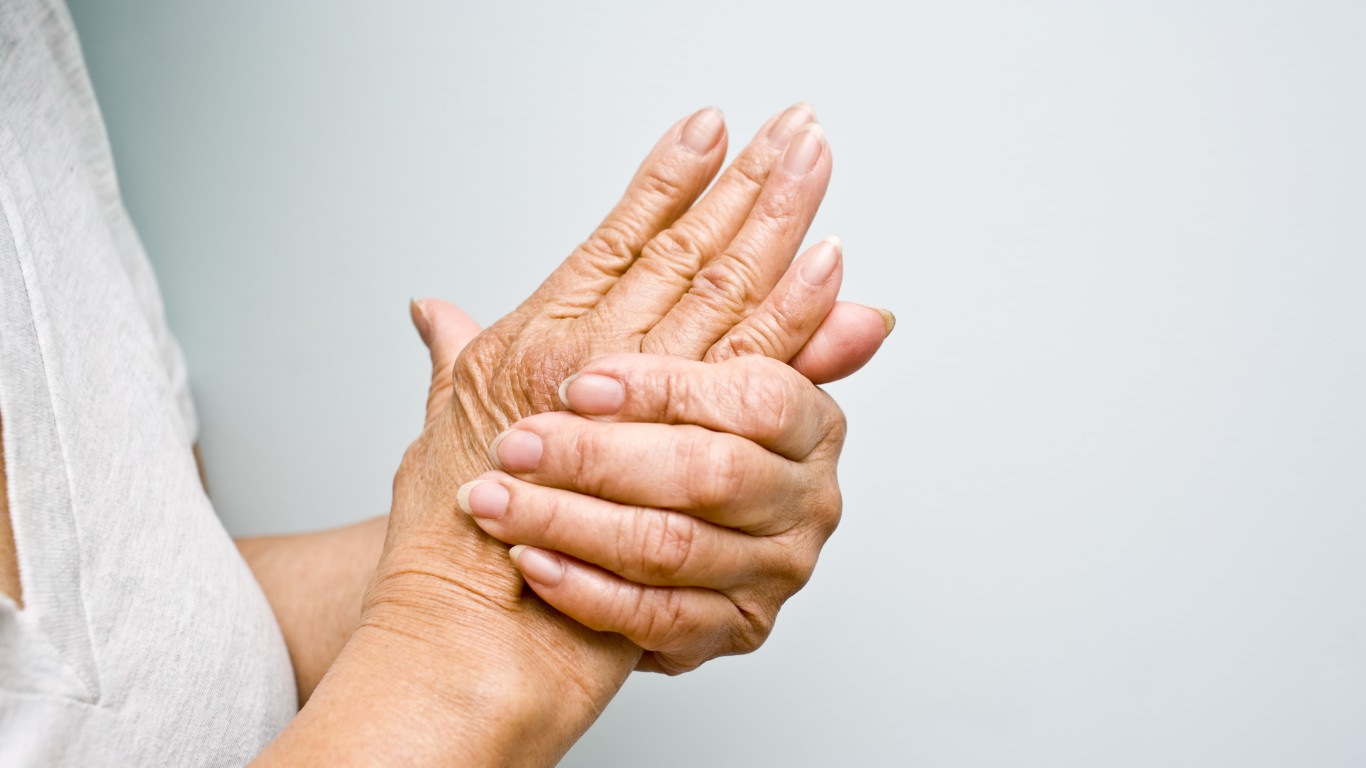
Arthritis
It’s common for people with musculoskeletal disorders such as arthritis to have trouble sleeping. Over 80% of people diagnosed with rheumatoid arthritis report fatigue. Arthritis patients may wake up feeling stiff and achy. Lack of sleep or poor quality of sleep lowers the pain threshold in arthritis and makes it more difficult for people to manage the pain because of higher levels of stress hormones in the body, according to the Arthritis Foundation.

Bipolar disorder
Most people who have bipolar disorder have problems with their sleep — both sleeping too much during a depression stage and feeling like they don’t need much sleep at all during a full mania stage. In fact, such sleep disturbances are often a sign of an imminent period of mania. Some research has suggested that sleep improvement may help ease bipolar symptoms.

Cancer
There is some evidence indicating that irregular sleep increases the risk of cancer because how body cells grow and divide is highly influenced by the circadian rhythm, according to the National Sleep Foundation. But sleep problems may be a symptom of cancer, too.
About half of people diagnosed with cancer experience sleep disturbances, usually insomnia and irregular sleep-wake cycles (meaning there is no clear circadian rhythm), according to the National Cancer Institute. Cancer patients’ sleep difficulties may be the direct result of pressure from the tumor, nausea, pain, or trouble breathing.
[in-text-ad-2]

Dementia
Dementia and sleep problems are connected. Though experts are not sure which comes first, it is believed that disturbed sleep may be one of the earliest symptoms of dementia. Daytime sleepiness and fragmented sleep at night are common among people with dementia, who, as a result, may take frequent naps during the day.
Sleep apnea, a serious sleep disorder in which people stop breathing while sleeping, is common among dementia patients, and research has found a link between the sleep disorder and a higher risk of developing dementia.
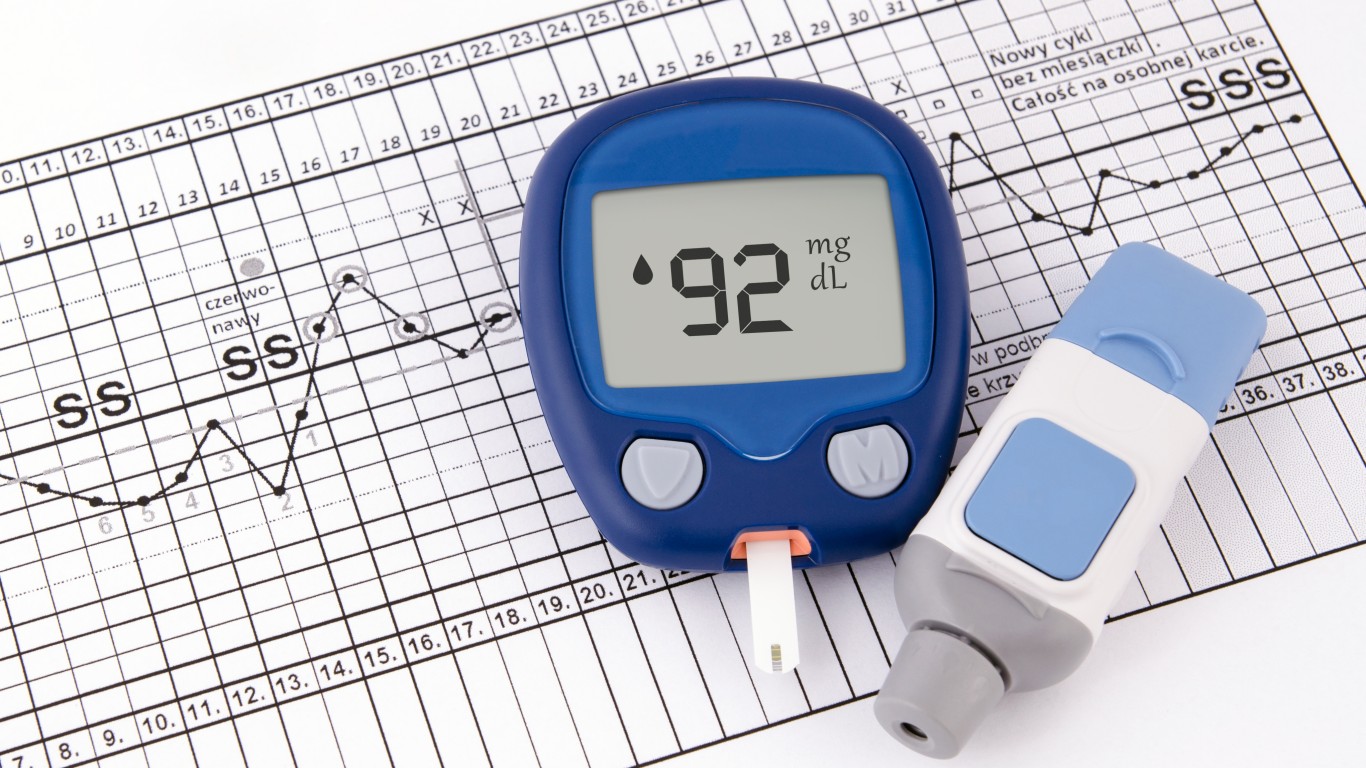
Diabetes
About half of people with type 2 diabetes struggle with sleep problems, according to the National Sleep Foundation. Sleep deprivation can lead to less insulin, which controls blood sugar levels, and more cortisol, which further hinders insulin’s job. The combination leads to high blood sugar levels, which can lead to insomnia. Sleep apnea and restless legs syndrome, a condition in which a person has an irresistible urge to move the legs at night, are common among diabetics.
[in-text-ad]
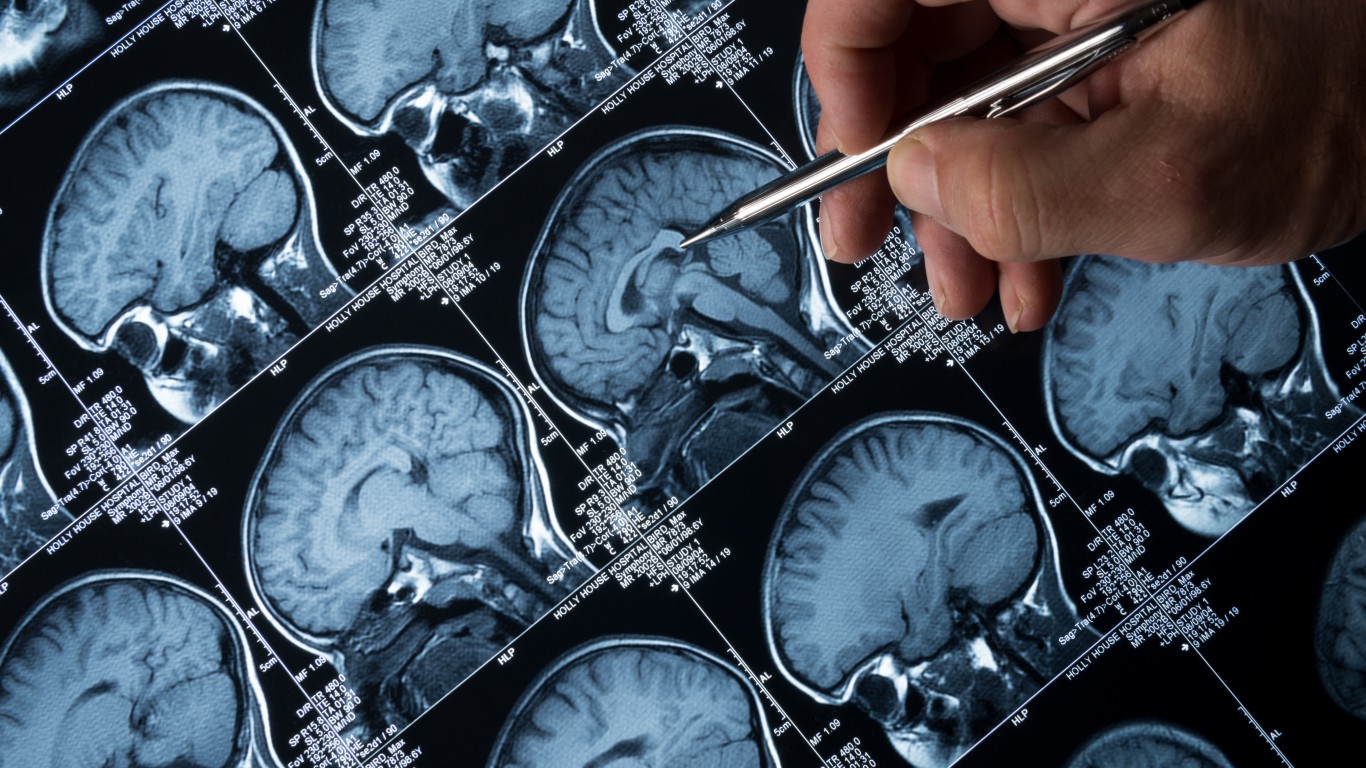
Epilepsy
As few as a quarter and as many as 55% of people diagnosed with epilepsy, a neurological disorder that causes seizures, have insomnia, according to the Sleep Foundation. The insomnia may be a direct result of nighttime seizures. Other sleep disorders are also common in people with epilepsy. Doctors are not sure why exactly how lack of sleep may trigger seizures, but one theory is that sleep deprivation leads to large changes in the electrical activity of the brain, causing a seizure.

Heart disease
Chest pain and discomfort are sometimes caused by heart disease, and they can make it hard to relax and fall or stay asleep. Lying down can make a person feel short of breath. As many as 44% of people with heart problems also experience insomnia, according to the American College of Cardiology.
Heart disease causes sleep problems, and sleep disturbances can take a toll on the heart and increase the risk of developing heart disease. According to the National Sleep Foundation, studies suggest that even teenagers who do not get enough quality sleep are at higher risk of heart disease because they have higher cholesterol, blood pressure, and BMIs, as well as more abdominal fat.

High blood pressure
Even one night of inadequate sleep in people already suffering from hypertension can cause elevated blood pressure throughout the following day, research has shown. A 2015 study published in the journal Hypertension that observed 200 people with chronic insomnia found that people who took 14 minutes to fall asleep were three times more likely to have high blood pressure. The longer it took to fall asleep, the higher the risk of developing hypertension. Normal high blood pressure is considered to be 120/80 or lower.
[in-text-ad-2]
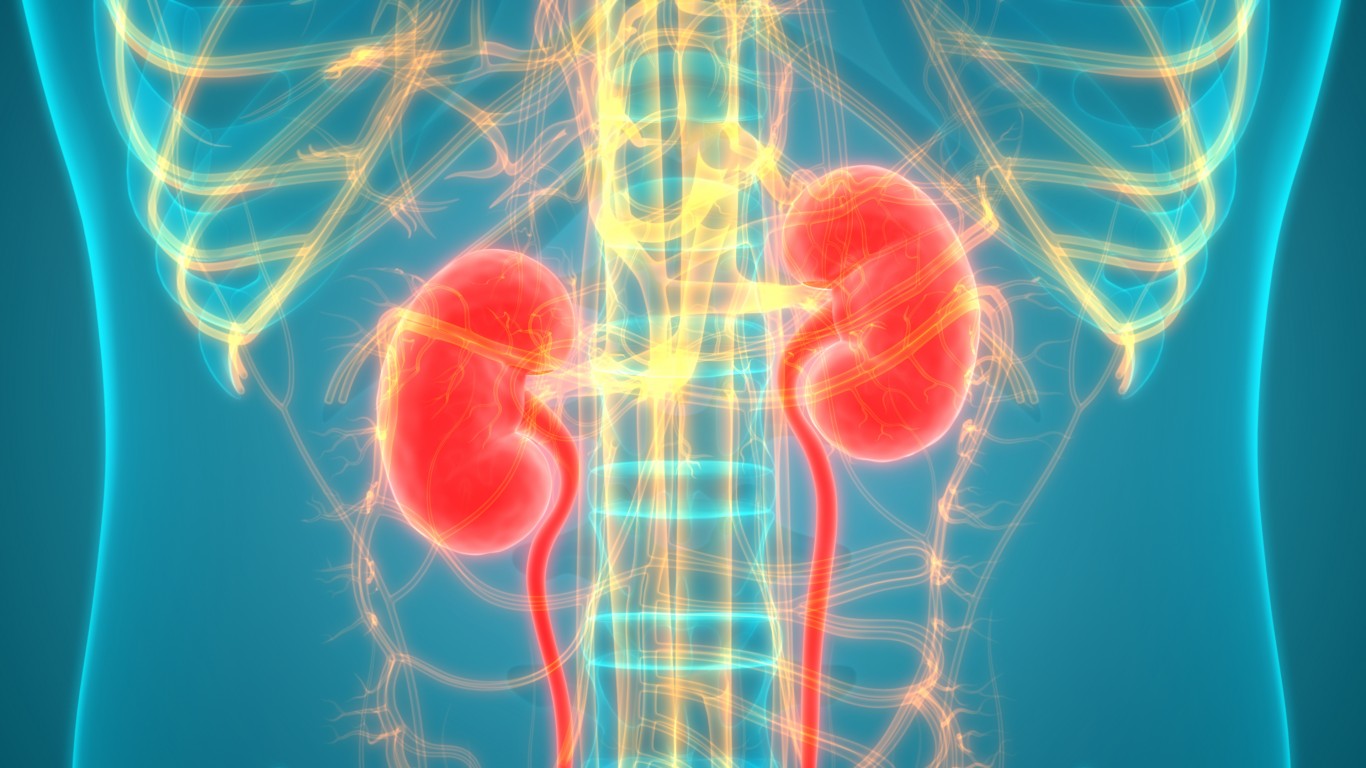
Kidney disease
Sleep disorders such as insomnia, excessive sleepiness, and sleep apnea are common among people living with chronic kidney disease. Sleep disturbances in patients with kidney disease may be due to uremia, a condition involving high levels of toxins in the blood due to the kidneys not filtering them properly.
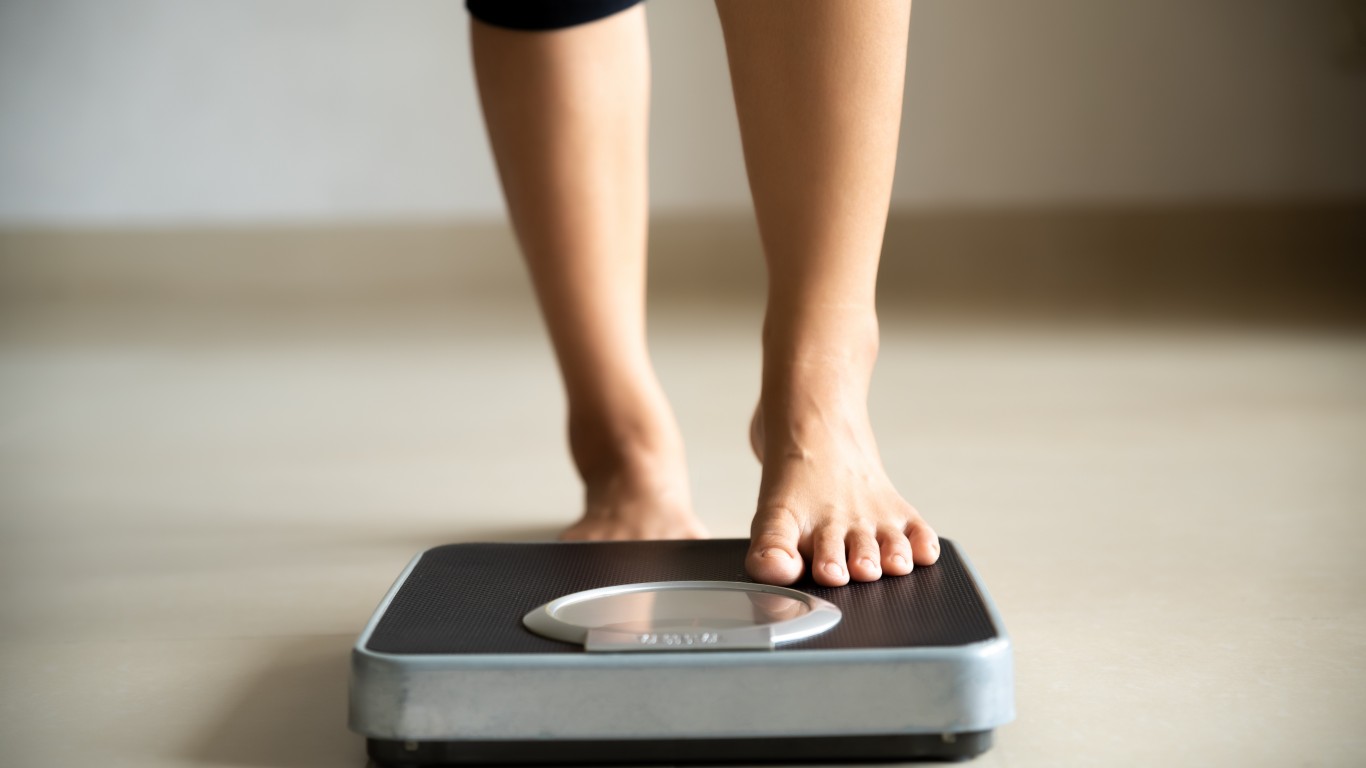
Weight gain
Sleep loss can disturb energy expenditure because of its effect on leptin, an appetite suppressor, and ghrelin, an appetite increaser. Less leptin and more ghrelin explain why sleep-deprived people are hungry more often and why they tend to have a higher body mass index. People who do not get a lot of sleep often prefer comfort foods, including junk food, which is high in fat, salt, and sugar, all of which can lead to weight gain.
[in-text-ad]
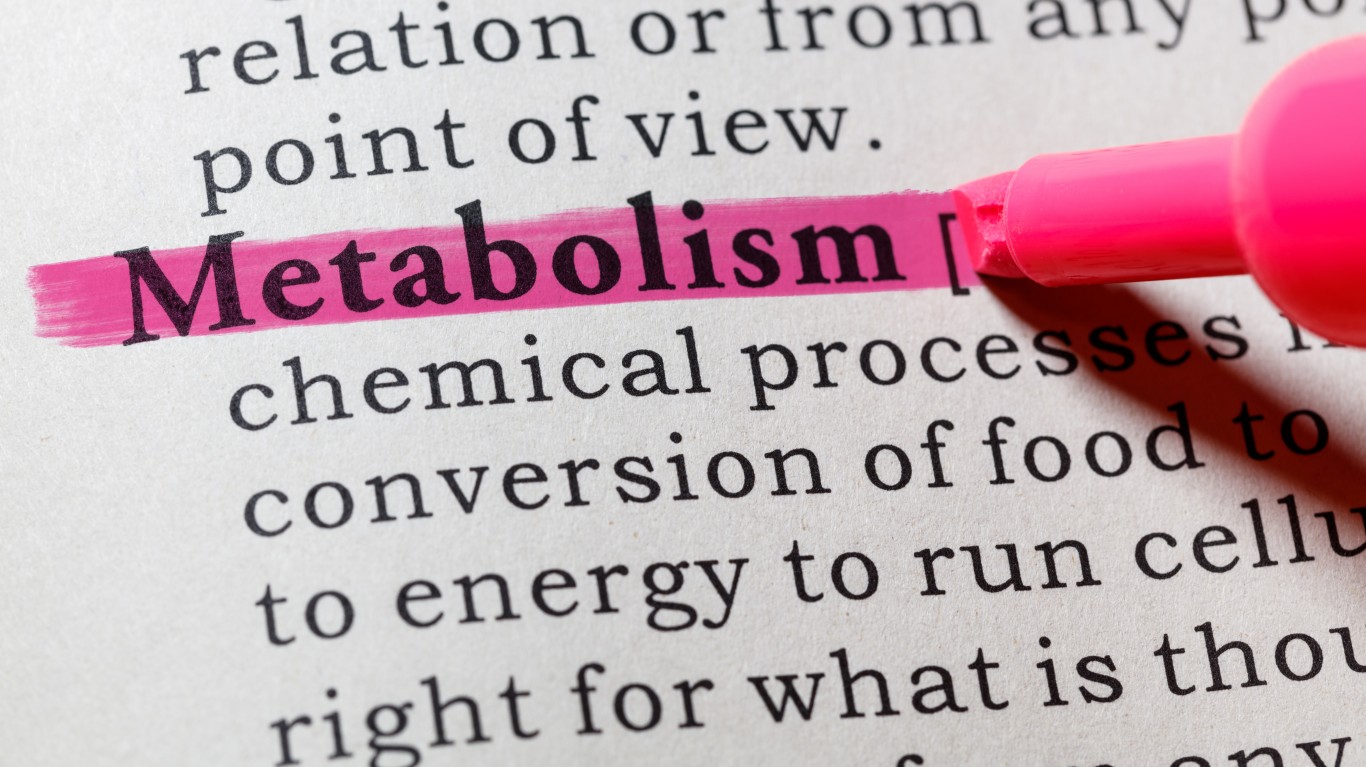
Slow metabolism
A person’s metabolism will not function properly if they are sleep deprived. Evidence has suggested that insufficient sleep has a significant influence on metabolism because it alters glucose metabolism and decreasing leptin and increasing ghrelin. Both hormones are involved in regulating metabolism.
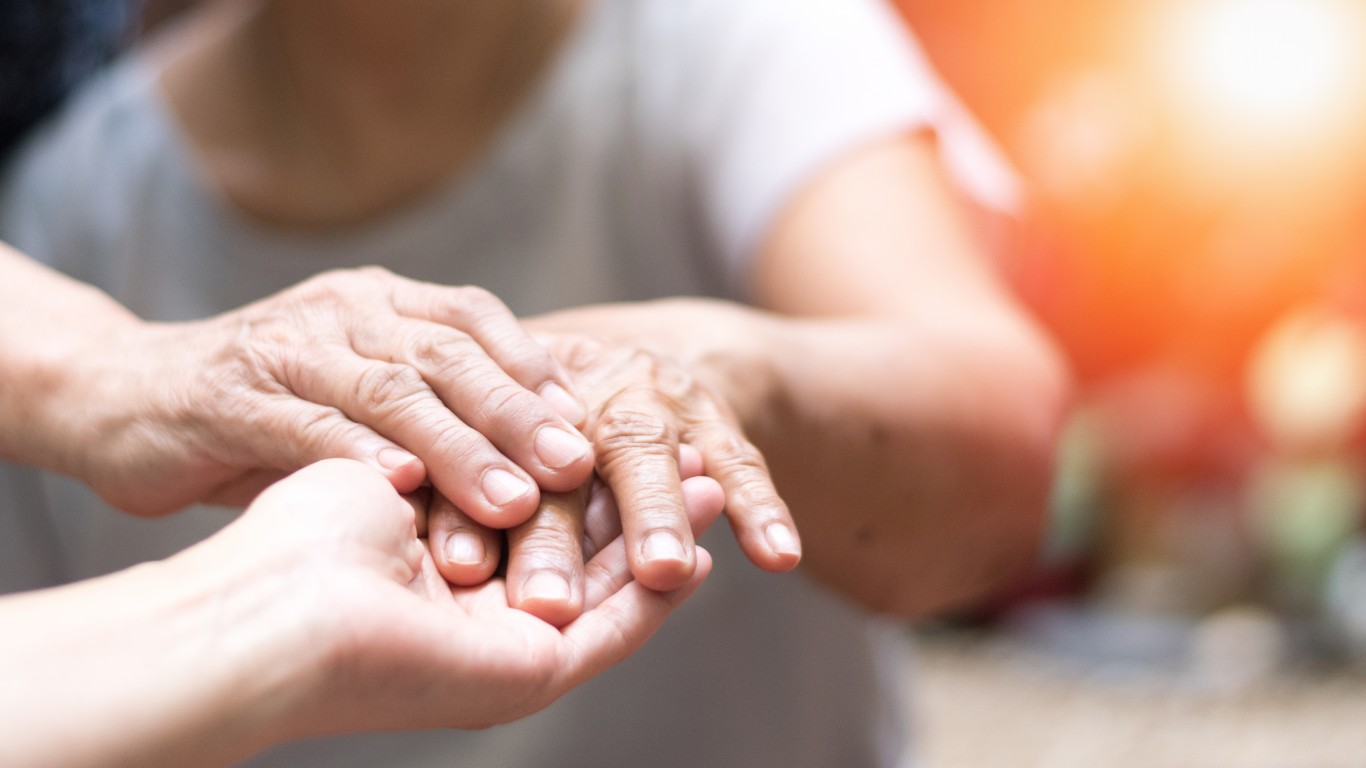
Parkinson’s disease
Most people with Parkinson’s disease experience sleep disturbances, the most common of which are difficulty falling asleep, excessive daytime sleepiness, restless legs syndrome, and waking up to go to the bathroom. There is some evidence suggesting that sleep problems are one of the earliest signs of the nervous system disorder.
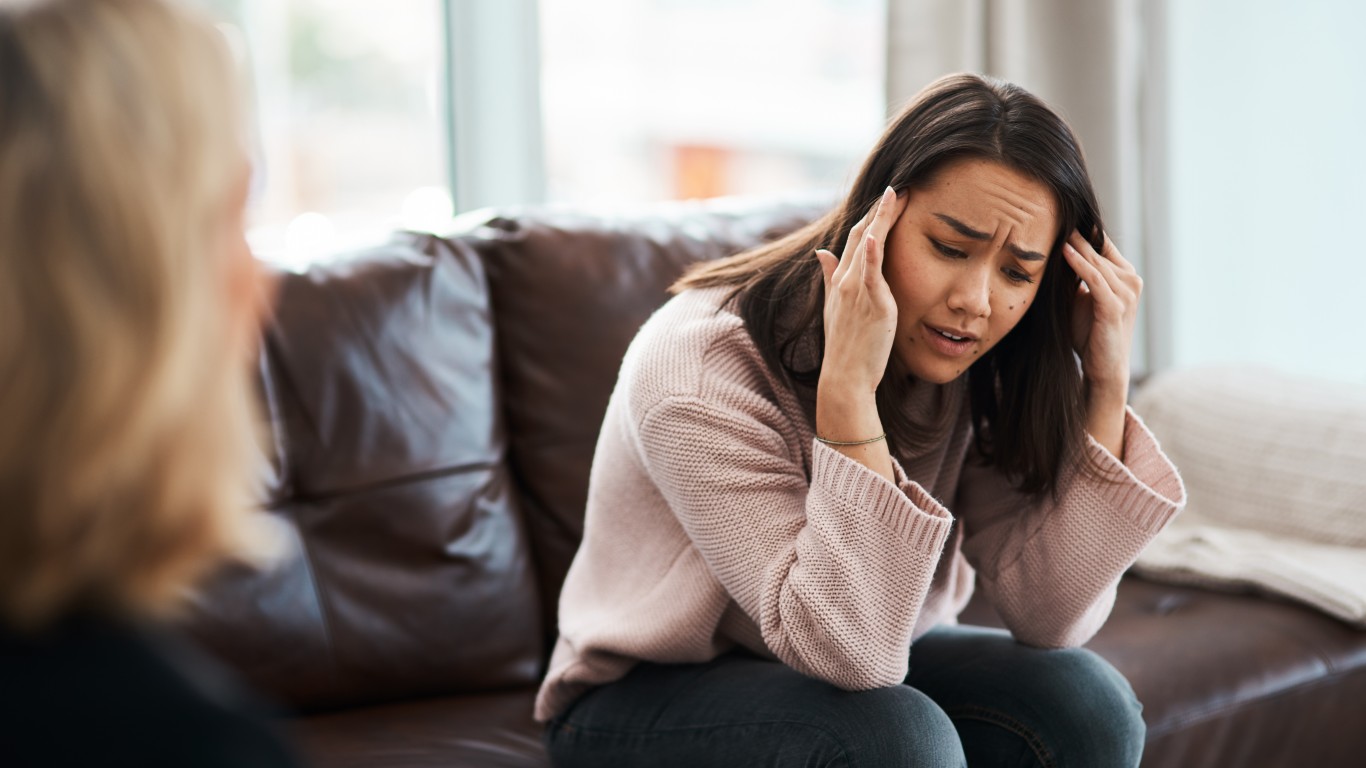
Schizophrenia
There is no evidence that sleep disturbances cause psychiatric disorders such as schizophrenia, but people diagnosed with the disorder often have sleep problems. In fact, psychiatric disorders are a leading cause of insomnia. People with schizophrenia may have irregular sleep patterns, sleeping at any time during the day or night. Both lack of sleep and excessive sleep are common. In some cases, psychotic symptoms cause anxiety, making it hard for people to fall asleep.
[in-text-ad-2]
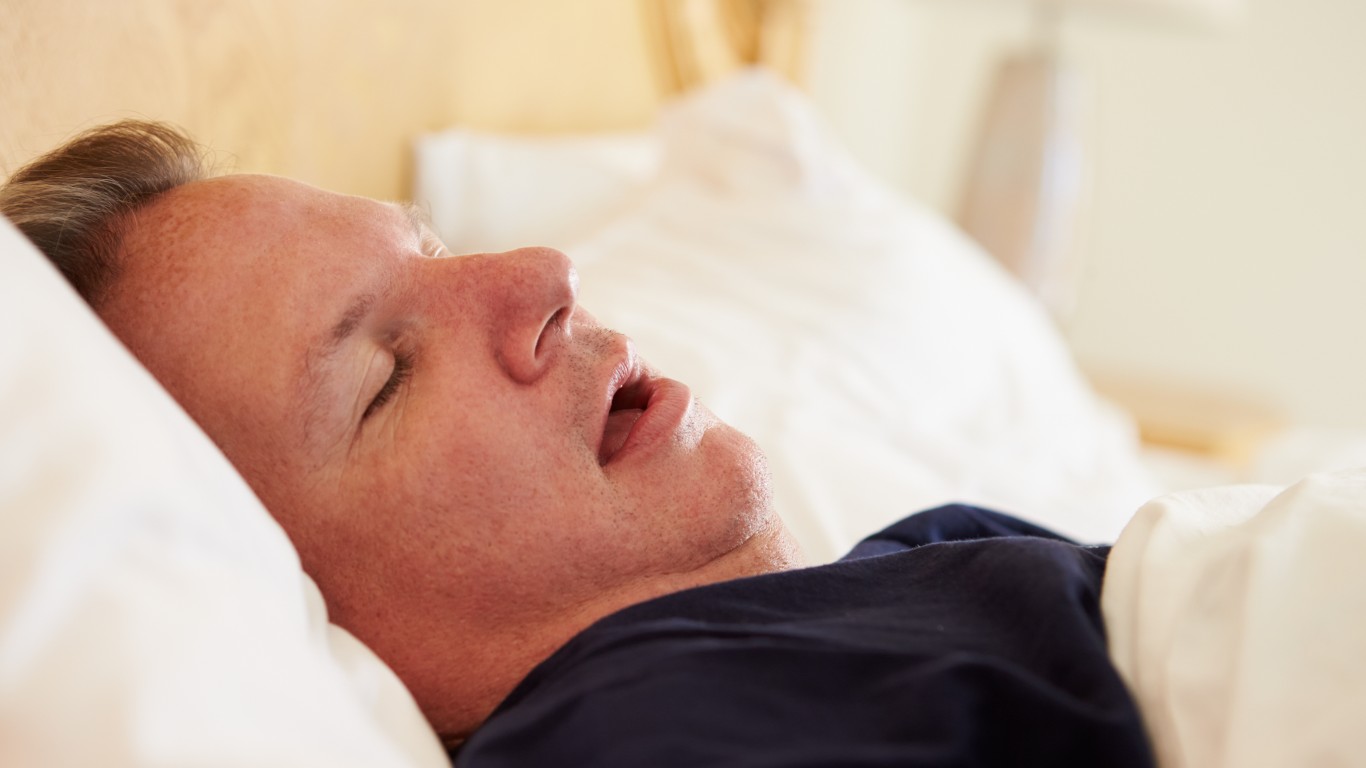
Sleep apnea
Sleep apnea, a common condition that many people don’t even know they have, is much more serious than a few bad nights of sleep. If undiagnosed, sleep apnea — a disorder in which breathing stops and starts repeatedly during sleep — can increase the risk of heart disease.
Symptoms include snoring, daytime fatigue, dry mouth when waking up, night sweats, and waking up frequently at night. Inconsistent sleep and low blood oxygen levels as a result of the pauses in breathing can also lead to chronic fatigue, hypertension, anxiety, and memory problems.

Thyroid disease
The thyroid gland makes hormones that affect many bodily functions. So any kind of issues with the thyroid — whether it’s over- or underactive — can cause problems, including with sleep. People with an overactive thyroid may have trouble sleeping because of feelings of nervousness, irritability, and fatigue as well as night sweats and needing to go to the bathroom many times during the night.
People with an underactive thyroid, hypothyroidism, may have trouble sleeping because of joint and muscle pain as well as feeling cold. Hypothyroidism is the leading cause of hypersomnia, which is a feeling of excessive sleepiness or drowsiness on a daily basis, according to the Sleep Foundation.
Credit card companies are pulling out all the stops, with the issuers are offering insane travel rewards and perks.
We’re talking huge sign-up bonuses, points on every purchase, and benefits like lounge access, travel credits, and free hotel nights. For travelers, these rewards can add up to thousands of dollars in flights, upgrades, and luxury experiences every year.
It’s like getting paid to travel — and it’s available to qualified borrowers who know where to look.
We’ve rounded up some of the best travel credit cards on the market. Click here to see the list. Don’t miss these offers — they won’t be this good forever.
Thank you for reading! Have some feedback for us?
Contact the 24/7 Wall St. editorial team.